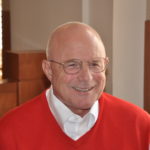Judge Arthur M. Monty Ahalt (Ret.)
History records the power of words in the affairs of mankind.Rudyard Kippling put it this way – “Words are, of course, the most powerful drug used by mankind.”
Kipling used this metaphor in a 1923 speech he made to the Royal College of Surgeons in London . He uses the comparison of words to drugs to describe the persuasive effect words can have on another person. As he says in the next sentence of the speech, “Not only do words infect, egotize, narcotize, and paralyze, but they enter into and colour the minutest cells of the brain. . . .” A vivid description of the ability of a person to use words to change and influence the way another person thinks and feels. Whether written or spoken, words have the power to change and transform the world around us.Words inspire emotions for good as well as bad – they inspire love and friendship or hate and anger.They evoke sympathy and compassion or judgement and rejection.Scripture records that God spoke the world into existence with words and that words have the power of life and death.
In the legal profession words are the tools of the trade – the secret to accomplishment of a client’s lawful objective. The transactional lawyer painfully chooses the words which “express the intent of the parties’ absent any ambiguity.
To the litigation lawyer words are the first vehicle of persuasion or as misused the delivery of destruction and misery. A really competent lawyer – what I call the winning lawyer – changes the choice of words in different arenas.
The wrong choice of words is the leading factor in an advocates failure to persuade.Remember now Aristotle’s Elements of Persuasion.
Logic
Emotion
Credible Believability
All three elements have to be accomplished largely through the use of words or pictures painted by words.Thus, in close case the lawyer who uses “verbal fisticuffs†LOSES THE EMOTION OF THE DECISION MAKER AND PERSONAL CREDIBILITY AND THEREFOR BECOMES UNWORTHY OF BELIEF. The confusing occasions of the mean spirited, sharp tongued lawyer winning the day are usually attributable to unbeatable facts and law. In other words no one – even the incompetent-could lose the case.
When the lawyer leaves the court room for the mediation room a major change in the choice of words is necessary for a successful end to a dispute. If a mediation lawyer walks into a mediation and in the opening statement starts to use sharp, mean spirited words it is almost impossible to rescue the mediation. On more than one occasion I have called a recess and asked to speak to each lawyer separately (without their clients) – usually picking the non-offending lawyer to go first. Privately, I can make sure that the lawyer knows the consequences of the chosen words and make some suggestions for a new choice of words. Suggestions like , “we could think about thatâ€, “ I will consider thatâ€, and “ that is an interesting pointâ€.
Always Have a Plan
When choosing the words that will be used ask the question – what do I wish to accomplish by my words? Then choose the best words to accomplish that objective. Make sure you have a plan – then chose words to accomplish that plan. First write the words down then speak them then think about your choice again. When it comes to words always – Plan , Write, Speak and then Plan Again.
by – Judge Arthur M. Monty Ahalt ( Ret.)

